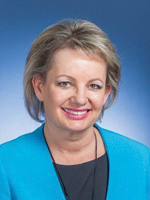The interim report of the Federal Government’s clinician-led review of all 5700 items on the Medicare Benefits Schedule (MBS) has found that one in every four surveyed patients believed they or an acquaintance had received, or been recommended to have, an unnecessary consultation, medical procedure or test.
The report released on 6 Sept by the Minister for Health and Aged Care Sussan Ley resulted from consultations with 2000-plus health professionals and patients across stakeholder forums, written submissions and an online survey.
The 14-member taskforce is chaired by Prof Bruce Robinson, Dean of the Sydney Medical School, with former AMA head Dr Steve Hambleton as deputy chair. Its stated aim is ‘To ensure that the Medicare Benefits Schedule provides affordable universal access to best practice health services that represent value for both the individual patient and the health system.’
The results also showed that 93 per cent of the surveyed health professionals considered parts of the MBS to be out-of-date, while one-in-two nominated specific Medicare items they believed were used for “low-value purposes”.
“This independent clinician-led Taskforce is committed to ensuring the right patient gets the right test at the right time”
In a reflection of how the recent election campaign had confirmed the importance of public healthcare to Australians, the Minister said, “We appreciate and understand Australians consider Medicare essential,” adding, “however our consultations also show health professionals and the public understands changes need to be made from time-to-time to keep it healthy and up-to-date with modern medical practices.”
Ms Ley said the aim was to deliver “the right balance for health professionals, patients, taxpayers and the future of Medicare in general… The MBS Review, combined with rolling out the Turnbull Government’s Medicare Health Care Homes and the revamped My Health Record, aimed to cut down on low-value use of MBS items through a greater focus on integrated care and stronger rules, education and compliance.”
She added, “For example, our Medicare Health Care Homes will see a patient with chronic illness sign up with one GP who will manage all of their integrated health care needs, cutting down on the potential for duplicate tests and procedures.
“The same goes with having an electronic health record that patients can use to share information with their GP, specialist, pharmacist, psychologist, practice nurse and emergency department doctor to ensure they’re all on the same page regarding everything from medical history through to recent tests, scans, prescriptions and allergies.
“In return, our work on Health Care Homes and the My Health Record will help the clinicians working on the MBS Review to ensure rules around Medicare items reflect modern, integrated clinical practice.”
Ms Ley said the results also supported the Government’s intention that the review was not just about removing low-value or outdated items from the MBS altogether, but equally ensuring the rules around a common item’s usage reflected best clinical practice targeted at the appropriate patient cohorts.
The report found: “Reported ‘low-value services’ were very rarely inappropriate for all patient groups; more commonly the complaint concerned the provision of services in circumstances where for that particular type of patient the benefits did not outweigh the risk or costs.
“This independent clinician-led Taskforce is committed to ensuring the right patient gets the right test at the right time.
“That’s why it has established around 40 Clinical Committees and working groups, with more than 300 clinicians actively involved in examining the MBS items they use on a daily basis to ensure we get this right first time.”





